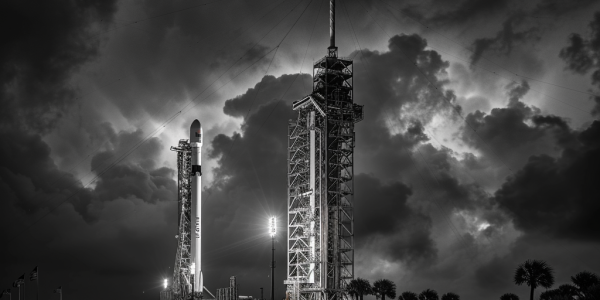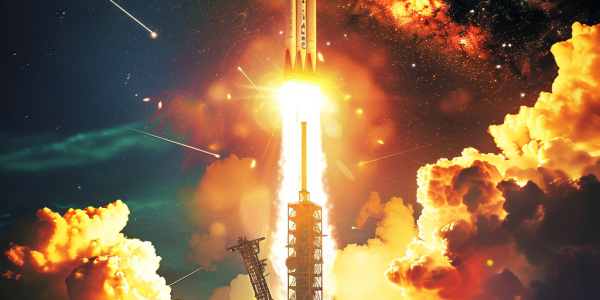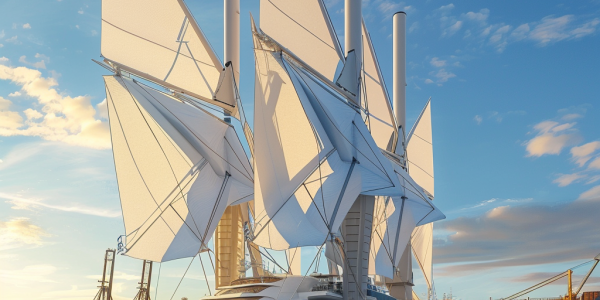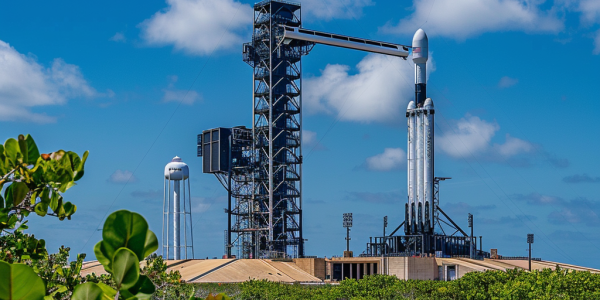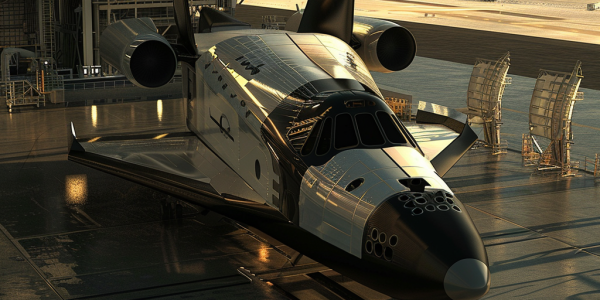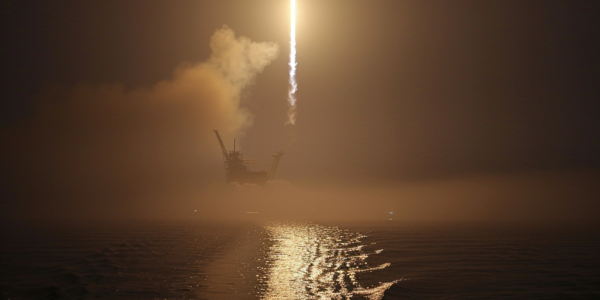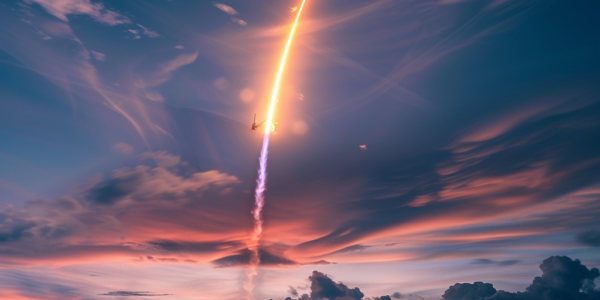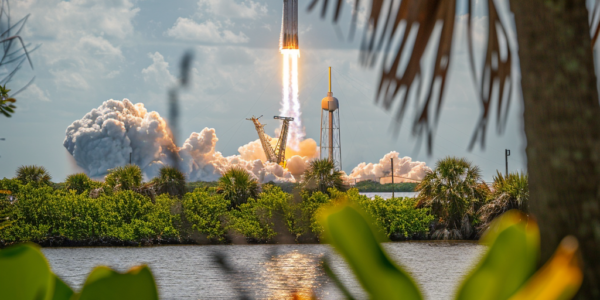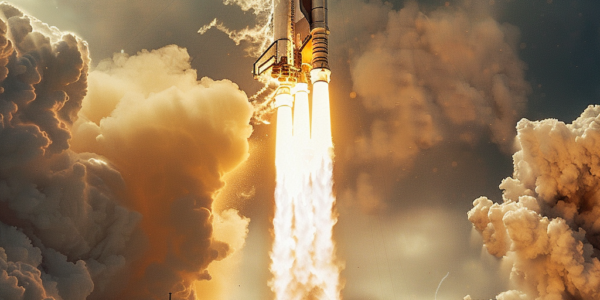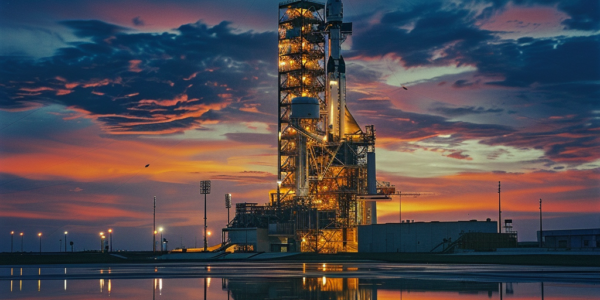SpaceX Postpones RRT-1 Mission Due to Weather Conditions
SpaceX has postponed its RRT-1 mission from Cape Canaveral due to adverse weather, prioritizing safety over the scheduled launch. The Falcon 9 rocket was ready for liftoff but faced high winds, leading to a scrub of the 8:05 p.m. EST launch. As weather conditions are closely monitored, the payload details remain undisclosed, adding intrigue to this mission. Stay updated on rescheduling and developments in the evolving space industry.
Ten Orbital Launches Scheduled This Week Highlighting Global Space Advancements
This week, the global space community is abuzz with excitement as ten orbital launches are scheduled, including significant missions from SpaceX, China, and India. SpaceX plans five Falcon 9 launches, enhancing global internet coverage with Starlink satellites. China’s active launch schedule continues with three missions, while India’s PSLV-XL prepares to deliver European spacecraft for solar observations. Anticipation builds for the launch of the European radar satellite Sentinel-1C, marking a pivotal moment in European space endeavors.
MV Canopée Makes Historic First U.S. Port Call at Port Canaveral
The MV Canopée, the world’s first hybrid propulsion commercial cargo vessel, made its historic first U.S. port call at Port Canaveral on September 2, 2024. This landmark event supports NASA’s Artemis-III mission, showcasing innovative maritime technology and a commitment to sustainability in cargo transport.
Florida’s Space Coast Gears Up for Potential Record-Breaking Year in Rocket Launches
Florida’s Space Coast is gearing up for a potentially record-breaking year in orbital rocket launches, with 48 launches already completed in the first half of the year. SpaceX has been a dominant player, with upcoming missions including the Türksat 6A satellite launch, United Launch Alliance USSF-51 mission, and SpaceX ISS Resupply Mission. Stay tuned for more updates on these exciting launches!
Sierra Space’s Dream Chaser Spacecraft Prepares for Debut Mission
Sierra Space’s futuristic Dream Chaser spacecraft, reminiscent of ‘Star Wars,’ is set to launch in September, aiming to test cargo capabilities before carrying human astronauts. With a unique design allowing for runway landings, the spacecraft represents a major advancement in private spaceflight. Stay tuned as Dream Chaser prepares for its inaugural mission, symbolizing a new era in space exploration.
SpaceX Successfully Launches 49th Starlink Mission
SpaceX successfully launches 49th Starlink mission, deploying 49th group 6 satellites. The first-stage booster completes its 20th flight and lands on the droneship, A Shortfall of Gravitas. The mission adds to SpaceX’s growing constellation of internet satellites, bringing global internet coverage closer to reality.
SpaceX Launches Doubleheader Falcon 9 Rocket Mission
SpaceX successfully launched a doubleheader Falcon 9 rocket mission to deploy satellites and expand its Starlink constellation, with one launch carrying the Eutelsat 36D satellite and the other launching 23 Starlink satellites. Weather conditions forced the postponement of a third SpaceX launch in California. Despite the challenges, SpaceX’s ambitious launch schedule and successful missions demonstrate the company’s commitment to advancing satellite deployment and space exploration.
Space Coast Sets New Record for Orbital Missions in 2023
The Space Coast in Florida has set a new record for orbital missions in 2023, with a total of 72 launches from both Kennedy Space Center and Cape Canaveral Space Force Station. The pace of launches is expected to increase significantly by the end of 2024, potentially reaching a rate of nearly twice weekly, with as many as 111 missions being possible. As of March 30, 2024, there have been 22 Space Coast launches, with 15 from Cape Canaveral and 7 from KSC. Of these, 21 were conducted by SpaceX (comprising 21 Falcon 9s) and 1 by ULA (utilizing 1 Vulcan). Additionally, there have been 2 human spaceflight missions: Ax-3 and Crew-8.
Packed Space Launch Schedule for March
This week’s space launch schedule is packed with four exciting flights, including the launch of Crew-8 to the International Space Station (ISS) from Florida, the Starlink 6-41 from Cape Canaveral, Transporter 10 from Vandenberg Space Force Base, and the debut of a new small satellite launcher from Japan. Crew-8, set to launch on March 3, will carry three NASA astronauts and one Roscosmos cosmonaut to the ISS for a six-month mission. The packed launch schedule promises an exciting start to the month of March, with multiple missions set to further humanity’s exploration of space and contribute to ongoing research and operations aboard the ISS.
NASA and SpaceX Delay Crew-8 Mission to Avoid Conflict with IM-1 Lunar Lander Launch
NASA and SpaceX have announced a delay in the launch of the four-person Dragon Crew-8 mission to the International Space Station (ISS) from February 22 to no earlier than February 28 to avoid potential conflict with the launch of Intuitive Machines’ IM-1 lunar lander mission. The Crew-8 Dragon Endeavour launch date will be reassessed following a successful launch of the IM-1 lunar lander, and it could be subject to further changes. This delay is part of ongoing efforts to ensure the safety and success of space missions amidst increasing interest and activity in space exploration.

